Stop Seeing The Caste System
in India from Western Lens
(Relevant for Sociology Optional for Civil Services Examination)
Introduction: Shifting from ‘Sanskritization’ to ‘Vaishyavization’
(Sociological Analysis of Caste System in India)
The subject of Caste system in India is often examined through Western sociological and philosophical paradigms, which tend to oversimplify its intricate nature. These Western frameworks rarely capture the full spectrum of the caste system’s complexities. While the elite and intellectual class may label caste as an outdated and primitive system, the truth remains that a substantial part of India’s population views it differently. They clamor for a caste-based census and even seek labels like “backward” to avail benefits like reservations. This growing gap between the intellectual discourse and the public sentiment necessitates a more nuanced discussion on the topic. Hence, the Sociological Analysis of Caste System in India.
Understanding Caste system in India as a Multi-Layered Institution

Caste system in India is an enigmatic social institution that includes a host of terms such as ‘varna’ and ‘jati.’ Tracing its origins to ancient Indian texts and practices, it has absorbed various influences over the millennia. Notably, the Portuguese introduced the term “casta” with its European notions of class and lineage. The British colonial efforts to codify social classifications ended up complicating the social landscape even more. Unfortunately, the term ‘caste’ has now become pejorative in elite circles, seen as a mark of cultural backwardness.
However, the situation on the ground tells a different story. For countless Indians, caste remains a significant aspect of their identity, often shaping their social interactions, marital alliances, and even economic transactions. Thus, dismissing it as merely a relic of the past does a disservice to understanding its multi-layered role in contemporary Indian society.
Caste system in India in the Political Arena
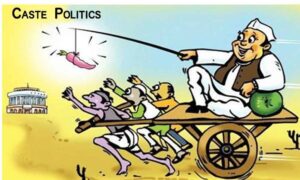
While the intellectual elites may be dismissive, caste is far from irrelevant in political terms. The rising demand for a caste-based census is a testament to its ingrained presence in India’s political and social fabric. Political parties frequently rely on caste vote banks to secure victories, as noted by numerous political analysts. This divergence between elite perceptions and public sentiment is not unique to India. Worldwide, there are growing movements where minority or marginalized groups seek acknowledgment of their status to counter historical and systemic disadvantages.
Marginalization: A Global Context

Marginalization is not an issue limited to India. In Western nations, white Christian males are often cast as the dominant oppressors, setting the stage for various minority groups to claim victim status. Similarly, in India, upper-caste Hindu communities are portrayed as the hegemonic majority. This global trend of seeking victimhood for socio-political advantages represents a fascinating parallel across different cultures. Historically, being ‘like the whites’ in America or ‘forward caste’ in India was desirable, but the scales have tipped. Now, claiming minority or backward status can bring distinct advantages in terms of social benefits and protections.
Intellectual Landscape: Historical and Contemporary Views
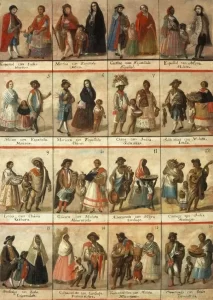
Diverse Indian voices have contributed to the intellectual discourse on caste. Organizations like Brahmo Samaj and Arya Samaj rejected the caste system outright. Social reformers like Jyotirao Phule and Ramaswami Naicker critiqued it as inherently racist. Despite their backing of British rule, their analyses of caste have withstood the test of time. Conversely, spiritual leaders like Narayana Guru and B.R. Ambedkar proposed transcending caste within different indigenous traditions. Even political stalwarts like Jawaharlal Nehru have shown a complicated relationship with caste. His Brahminical title ‘Pandit’ did not seem to damage his political career; if anything, it may have even enhanced it.
Academic Interventions and Shortcomings
The academic exploration of caste has been riddled with oversights and prejudices. Early Western academics like French missionary Abbe Dubois portrayed caste as a malevolent system designed by Brahmins. This skewed view has permeated modern academia, which has further complicated the discourse by introducing terms like ‘Brahminical patriarchy.’ On the other hand, Indian sociologists like G.S. Ghurye and M.N. Srinivas have attempted more balanced analyses but have been largely sidelined by Marxist and post-modern theories.
A New Paradigm: The Promise of ‘Vaishyavization’
In the cutting-edge book “Caste as Social Capital: The Complex Place of Caste in Indian Society,” Professor R. Vaidyanathan introduces a game-changing term: ‘Vaishyavization.’ This term opens up a new avenue for discussing caste, one that steers away from the limitations and biases of ‘Sanskritization.’ Armed with empirical data and devoid of ideological blinders, Vaidyanathan boldly tackles issues around capital market access and caste-based inequalities. This new term could potentially offer a more nuanced understanding of caste in the socio-economic context of modern India.
Conclusion
Caste system in India is far too nuanced and multifaceted to be understood through any monolithic lens, especially a Western one. As societal conversations evolve, it is crucial to adopt more indigenous frameworks for understanding caste dynamics. The move from ‘Sanskritization’ to ‘Vaishyavization’ could be a pivotal step in acknowledging the socio-economic realities that continue to shape caste in contemporary India. This shift could serve as a linchpin for future policies and social interventions, providing a more grounded and effective approach to one of India’s most complex social institutions.
FAQ: Sociology Optional UPSC – Rethinking Caste Dynamics in India
If you’re considering Sociology as an optional subject for the UPSC Civil Services Examination, understanding caste dynamics is crucial. Below are some Frequently Asked Questions (FAQs) that delve into various aspects of caste, particularly from an Indian perspective.
1. What is the Relevance of Studying Caste in UPSC Sociology Optional?
Studying caste system in India, particularly in India, gives valuable insights into the country’s social fabric. Understanding this complex institution can help aspirants answer questions related to social stratification, inequality, and social change effectively.
2. What are the Key Texts to Read for Understanding Caste System in India?
For a comprehensive understanding, it’s advisable to read classics like “Annihilation of Caste” by B.R. Ambedkar, “Caste and Race in India” by G.S. Ghurye, and modern texts like “Caste as Social Capital” by R. Vaidyanathan.
3. How is Caste system in India Different From Class?
While both are forms of social stratification, caste is traditionally hereditary and involves more rigid boundaries. Class is more flexible and is primarily economic in nature.
4. What Does ‘Sanskritization’ Mean in the Context of Caste system in India?
‘Sanskritization’ is a term coined by M.N. Srinivas, which describes the process through which lower castes adopt customs, rituals, and beliefs of the upper castes to elevate their own social status.
5. What is ‘Vaishyavization’ and How Does it Differ from ‘Sanskritization’?
Introduced by R. Vaidyanathan in his book “Caste as Social Capital,” ‘Vaishyavization’ is a newer concept that focuses on the socio-economic aspects of caste, moving away from the traditional focus on ritual status.
6. What are the Contemporary Views on Caste system in India?
Current discussions often revolve around issues like reservation policies, caste-based census, and identity politics. Many scholars are advocating for a shift from traditional ‘Sanskritization’ to more socio-economically oriented models like ‘Vaishyavization’.
7. How has Western Perception of Caste system in india Influenced the Indian Perspective?
Western views have often reduced the caste system in India to a ‘Brahminical conspiracy,’ sidelining its multi-layered nature. Such perspectives have been criticized for being too simplistic and for encouraging divisive social narratives.
8. What Role Does Caste system in India Play in Modern Indian Politics?
Caste system in India continues to be a significant factor in vote-bank politics, political mobilization, and policy formulation in India, making it a critical area of study for anyone interested in Indian sociology.
9. Is Caste system in India Still Relevant in Urban India?
Yes, despite modernization and urbanization, caste system in India identities persist even in metropolitan areas, often influencing social interactions, matrimonial choices, and economic transactions.
10. How Does Caste System in India Intersect With Other Social Categories Like Gender and Religion?
Caste system in India often intersects with other social categories, leading to multiple layers of discrimination or privilege. For example, Dalit women may face both caste-based and gender-based discrimination.
These FAQs are designed to provide a comprehensive yet focused understanding of the complex issue of caste in India, particularly useful for UPSC aspirants choosing Sociology as an optional subject.
Next Topic
 |
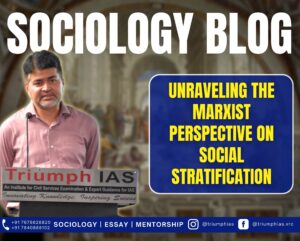 |

To master these intricacies and fare well in the Sociology Optional Syllabus, aspiring sociologists might benefit from guidance by the Best Sociology Optional Teacher and participation in the Best Sociology Optional Coaching. These avenues provide comprehensive assistance, ensuring a solid understanding of sociology’s diverse methodologies and techniques.
Why Vikash Ranjan’s Classes for Sociology?
Proper guidance and assistance are required to learn the skill of interlinking current happenings with the conventional topics. VIKASH RANJAN SIR at TRIUMPH IAS guides students according to the Recent Trends of UPSC, making him the Best Sociology Teacher for Sociology Optional UPSC.
At Triumph IAS, the Best Sociology Optional Coaching platform, we not only provide the best study material and applied classes for Sociology for IAS but also conduct regular assignments and class tests to assess candidates’ writing skills and understanding of the subject.
Choose The Best Sociology Optional Teacher for IAS Preparation?
At the beginning of the journey for Civil Services Examination preparation, many students face a pivotal decision – selecting their optional subject. Questions such as “which optional subject is the best?” and “which optional subject is the most scoring?” frequently come to mind. Choosing the right optional subject, like choosing the best sociology optional teacher, is a subjective yet vital step that requires a thoughtful decision based on facts. A misstep in this crucial decision can indeed prove disastrous.
Ever since the exam pattern was revamped in 2013, the UPSC has eliminated the need for a second optional subject. Now, candidates have to choose only one optional subject for the UPSC Mains, which has two papers of 250 marks each. One of the compelling choices for many has been the sociology optional. However, it’s strongly advised to decide on your optional subject for mains well ahead of time to get sufficient time to complete the syllabus. After all, most students score similarly in General Studies Papers; it’s the score in the optional subject & essay that contributes significantly to the final selection.
“A sound strategy does not rely solely on the popular
Opinion of toppers or famous YouTubers cum teachers.”
It requires understanding one’s ability, interest, and the relevance of the subject, not just for the exam but also for life in general. Hence, when selecting the best sociology teacher, one must consider the usefulness of sociology optional coaching in General Studies, Essay, and Personality Test.
The choice of the optional subject should be based on objective criteria, such as the nature, scope, and size of the syllabus, uniformity and stability in the question pattern, relevance of the syllabic content in daily life in society, and the availability of study material and guidance. For example, choosing the best sociology optional coaching can ensure access to top-quality study materials and experienced teachers. Always remember, the approach of the UPSC optional subject differs from your academic studies of subjects. Therefore, before settling for sociology optional, you need to analyze the syllabus, previous years’ pattern, subject requirements (be it ideal, visionary, numerical, conceptual theoretical), and your comfort level with the subject.
This decision marks a critical point in your UPSC – CSE journey, potentially determining your success in a career in IAS/Civil Services. Therefore, it’s crucial to choose wisely, whether it’s the optional subject or the best sociology optional teacher. Always base your decision on accurate facts, and never let your emotional biases guide your choices. After all, the search for the best sociology optional coaching is about finding the perfect fit for your unique academic needs and aspirations.
META TAGS: Caste System in India, Rethinking Caste System in India Beyond Western Perspectives, Sociological Analysis of Caste System in India, the Caste System in India, Caste System, Caste System in politics, Caste System in India, the Caste System in India, Caste System, Caste System in politics, Caste System in India sociology, Caste System in India upsc, Caste System in India sociology optional, UPSC Caste System in India,
Follow us :
🔎 https://www.instagram.com/triumphias
🔎https://www.youtube.com/c/TriumphIAS
https://t.me/VikashRanjanSociology
Find More Blogs
|
Scope of the subject and comparison with other social sciences |
|||
|
|
|
|
Modernity and social changes in Europe |

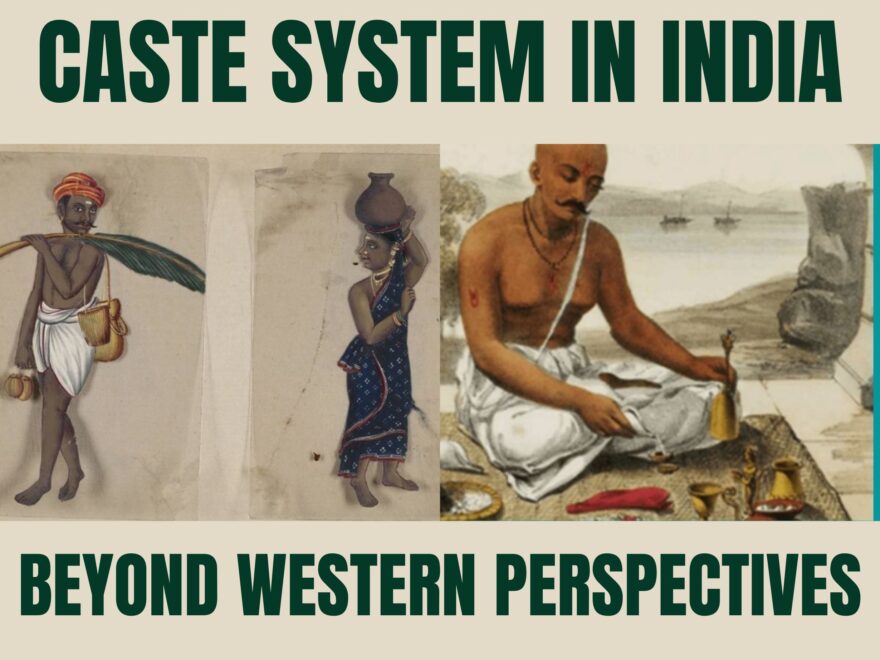
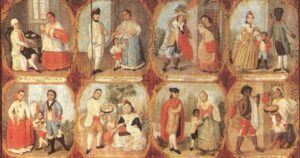
One comment